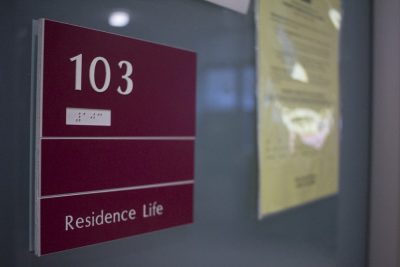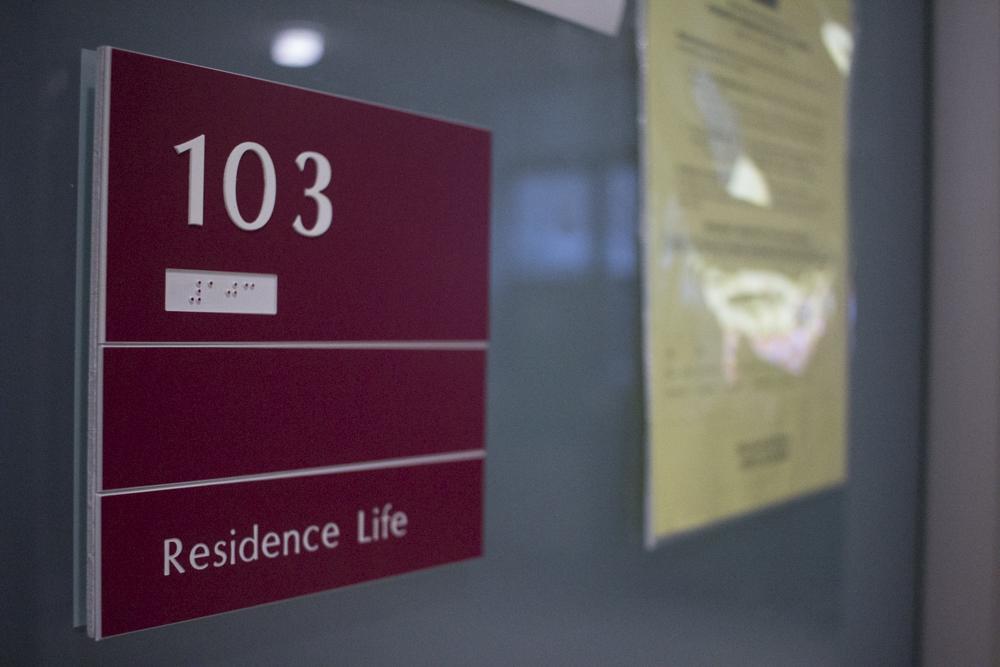
Multiple incoming freshmen and Boston University Orientation employees have said BU Admissions has overenrolled the Class of 2025, which resulted in many freshmen being placed in traditionally upperclassmen housing.
This incoming class of 2025 was selected from a “record-breaking pool” of 75,733 applicants — a 24% increase from the previous year.
BU reported that out of the pool of candidates, 18.3% were admitted, meaning 13,884 applicants received acceptance letters. According to the BU Admissions website, this resulted in a freshman class size of 3,200 students. But BU spokesperson Colin Riley wrote in an email that “enrollment for the incoming class is expected to be 4,000.”
The University’s number on the website is consistent with past acceptance figures: BU Today reported last March that Admissions aimed to enroll 3,100 students for the Class of 2024 and enrolled 3,194 students the year before that.
But Aiden Cardozo, a rising sophomore in the College of Arts and Sciences who works as a student facilitator for BU Orientation, said he heard from his supervisors “and various administrators that [BU has] been massively overenrolled.”
Cardozo said of the 5,516 students that had enrolled for Orientation, around 5,300 showed up for the event.
“The consistent message that I’m getting is that yes, we have overenrolled. Yes, it’s by a lot. Yes, it’s looking like this is a precarious situation,” he said.
Cardozo added that some incoming freshmen expressed their distress at being placed in traditionally upperclassmen housing to him during Orientation.
“They have all been really disappointed, really frustrated by the lack of clarity,” Cardozo said.
Cardozo added the sharp increase in class size may result in “the University having to put freshmen in the Fenway Campus, having to rent out hotels,” a sentiment also expressed in various social media threads online.
“This would really be a great time for the University to step up and provide some clarity on these issues,” Cardozo said.
BU Housing, BU Orientation and BU Residence Life declined requests to comment.
Riley wrote in an email that “President Brown has said the freshman class is larger-than-planned.’”
Riley wrote this admissions cycle was “anything but typical.” He wrote that BU has “sufficient on-campus housing capacity” and that he is not concerned by any increase.
According to Riley, the Fall enrollment tally will be tabulated and reported to the Department of Education in late October, but he emphasized that the final class figure will be manageable.
“Our class may perhaps be hundreds of students above, not thousands above, what we initially expected,” wrote Riley. “We’ve been doing this a long time and enrollment fluctuations are not an issue.”
BU has overenrolled in the past, often offering upperclassmen students accommodations in nearby hotels for one semester to place as many new students in on-campus housing as possible.
Cardozo added he felt “encouraged” by his supervisors to refrain from advertising certain freshmen courses — such as the popular First Year Experience or FY101 class, which aims to introduce new students to BU and its opportunities.
“We all received so many questions about housing, so many questions about classes being booked and students being unable to register for their courses,” he said. “We have nothing to say to them except, ‘Well, we’re sorry and hopefully more information will be coming out soon.”
As far as housing for freshmen, Riley wrote that “incoming students always have been assigned to a wide variety of campus residences, large and small alike.”
Valeria Hernandez, an incoming freshman in the College of Communication, said while she had selected Warren as her top option, she was assigned to suite-style living in 1019 Commonwealth Avenue on West Campus.
“Not only were we mad that we were assigned to not a freshman dorm and that it was far away from where we wanted it to be in East or Central Campus specifically, our parents were also mad because they had to pay more money,” said Hernandez.
Hernandez added although she and her roommate promptly contacted housing and informed them of their “discontent” with their assignment, “they just told us that they were gonna write our names down and just hope for a switch.”
“Overall we were not expecting that [placement], and we’re trying everything we can do to change it,” said Hernandez.
Hernandez, who is originally from Costa Rica, said she hoped being placed in a traditional freshman dorm would help ease her transition to the United States.
BU Housing requires all freshmen to live on campus, with 99% of first-year students compliant with this policy. According to Admissions, most first-year students are placed in large dormitories such as Warren Towers and West Campus.
But the BU Reddit community also expressed that many freshmen have not been placed in typical underclassmen housing, with two separate “megathreads” created to discuss Fall 2021 Housing. These subreddits have a combined total of 488 comments as of press time.
Valeria Gálvez, an incoming freshman at the Questrom School of Business, said while she was assigned to her desired building and paired with her roommate of choice, they were unexpectedly placed in a triple in Claflin Hall in West Campus
“We were placed in a triple room with another student who we don’t know and we never put her name or her BU ID,” Gálvez said.
575 Commonwealth Avenue, commonly known as “HoJo,” is reopening this Fall for residential living after having been used as quarantine housing the past year, making it an option for underclassmen housing
As for how the University will navigate quarantine housing this Fall given the reopening of Hojo, Riley wrote that vaccinations, testing and other public health protocols will “give the University the data and information needed to decide what additional steps, if any, are necessary.”
























































































































